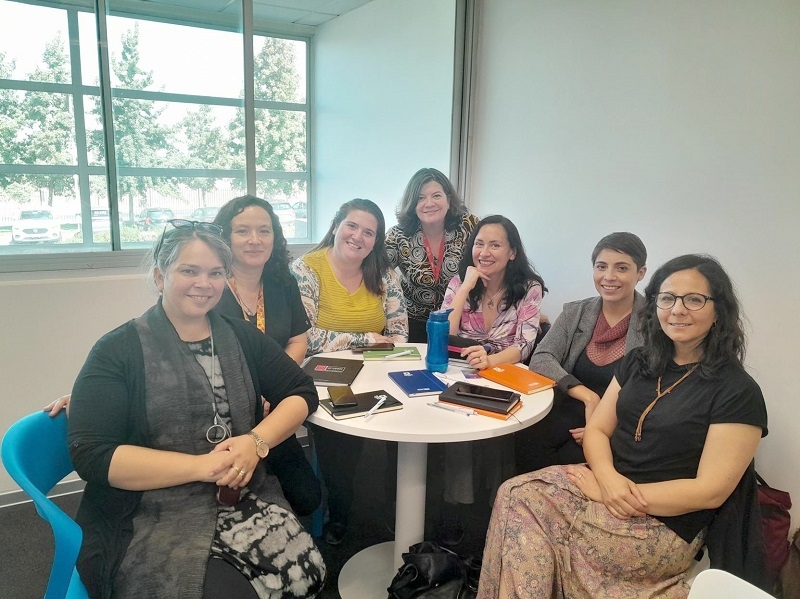They form a gender agenda that seeks to reduce gaps in the field of science
Officially formed this week, the Roundtable on Gender in Science, Technology, Knowledge, and Innovation (CTCI) for the Maule District is an example Seremi leads for women and gender equality in the district and Seremi for the CTCI of the Macrozone South Center that will seek to reduce existing gaps in science.
The aim of this table is to bring up the problems and strengths that researchers from different fields of knowledge have. At the national level we have a gender radiography in science, technology, knowledge and innovation (CTCI). However, there are many regional problems and those are the ones we want to identify in order to shorten the gaps,” explained CTCI Seremi from the Greater South Central Region, Sofia Valenzuela Aguila.
This conference took place at the University of Talca and included the participation of the Coordinator of the Gender Equality Unit of the Vice-Rector for Research and Doctorate (UI-VRID) and member of the InES Gender Project of the Autonomous University of Chile, Hilda Hernandez Muñoz, with outstanding researchers from the Postgraduate House of Talca: Rosa Orellana , Vanessa Tesada, Veronica Gomez, Karina Donna, Jennifer Truk, Yaniris Mirabal and Patricia Mueller.
“Our participation in this table seeks to provide all the logistical and organizational support and to open spaces for our researchers to be the ones to bridge the gaps they face in their relationship with the Ministry of Science, Technology, Knowledge and Innovation,” stated UI-VRID Coordinator, Hilda Hernandez.
Vulnerabilities in the CTCI ecosystem
The researchers from the Autonomous University of Chile agreed with academics from other universities in the region when they noted that “some of the structural difficulties when interacting with state institutions are the high weight given to the principal investigator’s approach versus the research proposal and the high masculinity of the evaluation committees.”
In this sense, the organization for women and gender equality in the Mull region, Claudia Morales Courten, highlighted that “the importance of having this table with academics and researchers will allow us to focus our efforts on all the processes involved in research funding. Women and open a path that allows them to develop and reconcile their family and professional life ” Authority said.
For her part, the UI-VRID coordinator emphasized that she hopes that they will continue to “open spaces for links between our researchers and the public system, because their participation will be essential to improve
the CTCI ecosystem, to the extent that we respond to structural gaps and make progress on gender equality within our university.”

“Social media evangelist. Student. Reader. Troublemaker. Typical introvert.”

:quality(85)/cloudfront-us-east-1.images.arcpublishing.com/infobae/TEQF6EONZRFGLLLDIDD4L2O4EE.jpg)

:quality(75)/cloudfront-us-east-1.images.arcpublishing.com/elcomercio/XU32LRAEZFDDPNVHLFU3CKVBYY.jpg)



More Stories
Venezuela ranks fourth in female leadership in science and technology in Latin America
In Portuguesa and Sucre they explore the wonderful world of science
The university court overturns the expulsion of two teachers and a chemical sciences student